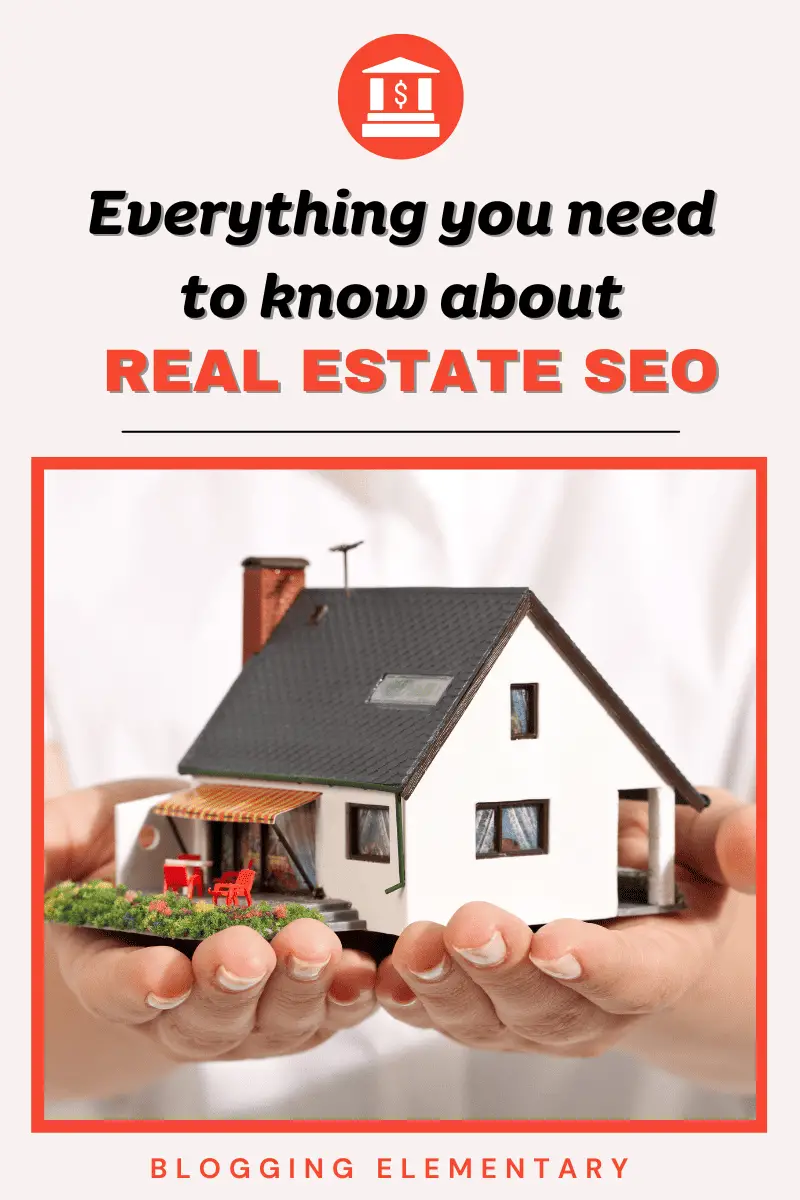Real Estate SEO, a highly specialized branch of search engine optimization, is essential for realtors and real estate bloggers aiming to enhance their online presence.
In 2023, it is no longer just about being visible in search results but about providing valuable, authoritative content that meets the specific needs of homebuyers and sellers. So, let’s see what you need to know to make it through next year.

Real Estate SEO: How To Prepare Yourself for 2024?
Real Estate blogging has become an essential tool for agents aiming to establish a strong online presence and engage effectively with potential clients.
As the real estate market continually evolves, blogging offers a dynamic way to share valuable insights, market trends, and property listings.
However, it’s not just about showcasing properties; it’s about becoming a trusted resource for current and prospective clients, providing them with the knowledge and guidance they need in their real estate journey.
Importance Of Title Tags And Meta Descriptions
The title tag and meta description of a webpage are the first elements a potential visitor encounters in search results.
In the realm of real estate, where competition is fierce, these elements are pivotal in making a first impression.
Title tags should accurately reflect the content of the page while being concise and engaging.
Similarly, meta descriptions must provide a brief overview of the page’s content, enticing the searcher to click through to the website.
These descriptions should include relevant keywords naturally, enhancing the page’s relevance in search engine algorithms.
SEO Trends & Techniques For 2023 That Real Estate Needs to Imbibe
SEO in 2023 goes beyond just keywords; it’s about understanding and implementing a wide range of tactics tailored to your specific blogging niche like real estate.
Some of the trends that real estate bloggers need to be aware of include:
Author Authority
In 2023, search engines emphasize the authority of content creators. This includes providing detailed author bios and linking their social media profiles to establish their expertise and authenticity.
Satisfying, Helpful Content
Google prioritizes content that is not only of high quality but also genuinely helpful and relevant to the audience. This means focusing on content quality over quantity and conducting comprehensive keyword and content research.
AI And Content Writing Software
The use of AI in content creation is on the rise, but it’s crucial to use these tools wisely to maintain originality and quality. AI can be used for generating content briefs, outlines, and ideas, but the core content should be human-centric and original.
SEO Automation
Automation tools for tasks like keyword research and site auditing can save time and improve efficiency, allowing for a focus on more strategic aspects of SEO.
Changes To Click-Through Rates (CTRs) By SERP Positions
With the introduction of endless scrolling on search engine result pages (SERPs), being on the second or third page might not be as disadvantageous as before. This changes the dynamic of CTRs by SERP positions.
Content Updates And Republishing
Updating, upgrading, and republishing old blog posts can significantly increase organic traffic. This approach involves adding new content, improving images, and updating information to make older posts more relevant and visible.
Compelling Title And Description Tags
Crafting compelling title and description tags can lead to more clicks in the SERPs. Analyzing Google Adwords ads for inspiration can be beneficial in creating these tags.
Broken Link Building On Wikipedia
This involves finding broken link opportunities on Wikipedia and creating content that can replace these dead links. It’s a powerful but time-consuming strategy that can yield significant SEO benefits.
Copying Competitors’ Best Keywords
Analyzing and adopting keywords that competitors are successfully ranking for can be a more straightforward approach to keyword optimization.
Optimizing Content For Social Shares
Creating content that is share-worthy can indirectly boost SEO by increasing traffic and potential backlinks.
Maximizing Local SEO For Real Estate Success
In the realm of Real Estate SEO, maximizing local SEO is a critical strategy.
Local SEO is about optimizing your online presence to attract more business from relevant local searches.
For real estate professionals, this means ensuring that when potential buyers and sellers in your area search for real estate services, your website appears prominently in the search results.
This involves optimizing your website and online content to be more visible and relevant for local searches related to real estate.
The focus should be on leveraging local keywords, engaging actively with local online communities, and ensuring your website is listed and accurately represented in local business directories and Google My Business.
Incorporating local SEO strategies can significantly boost your visibility in the areas where your potential clients are searching, making it an essential component of a successful real estate online marketing strategy.
Developing Engaging Content For Your Real Estate Blog
Creating compelling and relevant content is key to a successful real estate blog.
It’s important to stay current with the latest industry news, trends, and local events to establish yourself as an authoritative figure in the real estate domain.
This approach helps in building trust and credibility with your audience, thereby positioning yourself as a go-to resource for valuable information.
You should also focus on providing value through a variety of helpful articles and insights about the housing market.
Consistency in publishing quality content and concluding your blog posts with an effective call to action can significantly enhance engagement with your readers.
Strategies For SEO Optimization In Real Estate Blogging
Keyword Research And Placement:
Understand your audience and use tools like Google Keyword Planner, Ubersuggest, or Ahrefs to identify popular and relevant search terms. Incorporating these keywords into your blog posts can optimize them for search engines and boost your online presence.
On-Page SEO:
Ensure the optimization of individual blog posts by focusing on aspects like keyword placement, meta descriptions, bounce rate management, and click-through rate enhancement. Including internal and external links, and optimizing your posts for readability and engagement are also crucial.
Local SEO:
Utilize location-specific keywords and localize your content to target potential clients in specific areas. This includes writing about local market trends, events, and including consistent NAP information on every page of your website.
Backlinks And External Promotion:
Creating backlinks is vital for enhancing your blog’s domain authority. Engage in guest blogging, request backlinks from related sites, and monitor the impact of these backlinks on your SEO efforts. Social media and email marketing are effective ways to promote your blog externally and increase its visibility
The Importance Of Blogging In Your Native Tongue For Real Estate SEO
Blogging in your native language plays a crucial role in enhancing Real Estate SEO.
It’s not just about using a language that you’re comfortable with; it’s about creating a deeper connection with your local audience.
When you blog in your native tongue, you’re able to express nuances, cultural references, and local real estate terminologies more accurately and authentically.
This approach resonates better with readers who share the same cultural and linguistic background.
Moreover, local SEO greatly benefits from content written in the local language.
Search engines are increasingly adept at offering region-specific results, and content in the local language is more likely to rank higher in these searches.
This is especially important in real estate, where the target audience is often looking for properties within specific locales or communities.
Overall, today SEO transcends beyond the traditional reliance on keywords, ushering in a more holistic approach that addresses the unique demands of various blogging niches.
Real estate SEO, in particular, demonstrates the necessity of adopting tailored strategies to enhance online presence and connect with the intended audience effectively.
Embracing t diverse tactics not only augments visibility in a competitive digital landscape but also establishes a strong rapport with potential clients, crucial for success in the dynamic field of real estate.
